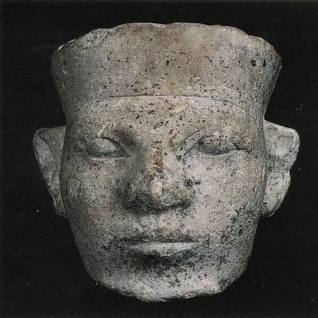
At an ISSE (International Society for the Study of Egyptomania) a presentation by Arab scholars was made that merged Arab and ancient Egyptian society . An academic objection was raised that this was an example of cultural appropriation and cultural genocide. This objection was censored on the grounds that it might be found ’offensive’ by the speaker. So a presentation that supports cultural appropriation and cultural genocide is not itself ‘offensive’ but anyone criticising it in a purely academic manner can be accused of being ‘offensive’. Cultural genocide and ethnic cleansing is acceptable, but criticisng it is offensive. (Remind anyone of the Gaza issue?) What is the message to the academic community – if you wish to be accepted you must not make any serious criticism of Arab Egypt, despite the fact that the modern name is Arab Republic of Egypt. If you do make such criticism you will be cancelled.
My comments to the conference were:
“We are witnessing an attempt at cultural appropriation – Sultan Al-Aziz Uthman, tried to destroy the Pyramids … this is not a culture that valued the ancient Egypt, further they then engaged in cultural genocide against the Copts, banning the teaching of the language in schools till eventually the popular language died out. Then we have modern day ethnic cleansing moving the native population to out of the way places.
Now we are witnessing the attempt to embed this cultural appropriation under the guise of anti-colonialism.
This Arabic society values ancient Egypt as a money earning tourist event not as a sacred history as they value their Muslim and Arabic past.
A society that values Arabic more than Coptic is not a descendant from ancient Egypt. If we accept such presentations, we are complicit in cultural genocide.”
Other Egyptian participants made politically charged comments such as:
‘I feel like Pan-Arabism is so complicated in these topics–on the one hand, it can be a way for Egypt to use its influence/platform in the global sociopolitical landscape to stand in solidarity with other SWANA countries, so it also makes Egyptian nationalism feel like an abandonment of that solidarity in a selfish ploy to dominate the cultural and sociopolitical landscape further, but then it’s also wrapped up with colorism and just a whole bunch of other stuff. (My own diasporic opinions.)’
These comments were allowed to stand.
This issue of cultural genocide and ethnic cleansing in modern day Egypt is important. Unfortunately neither Angela Davis nor Gerald Horne would respond to a call for action even though they both championed Palestinians against cultural genocide and ethnic cleansing.
Enough is enough. It is time to call modern day Egypt out.

